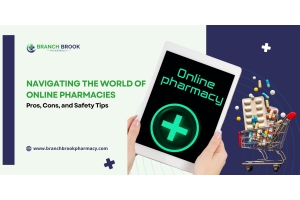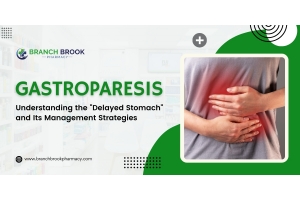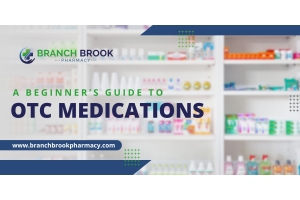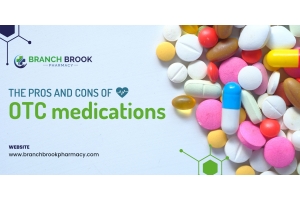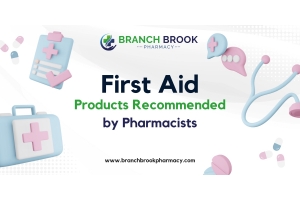The Top 10 Common OTC Products
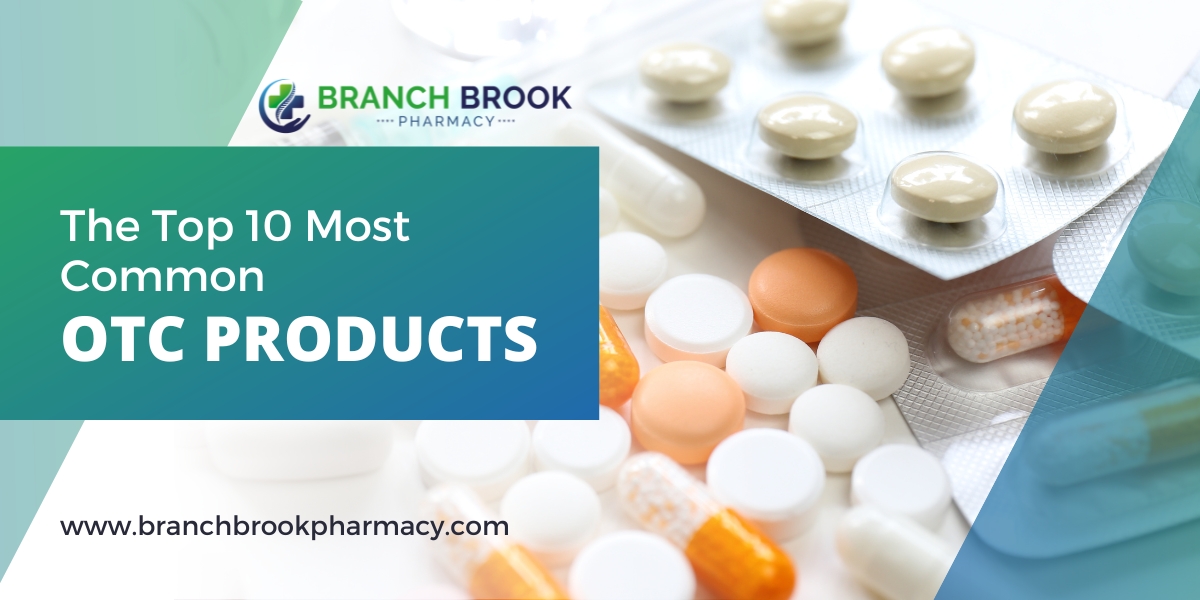
What would you like to purchase to feel better?
The world of over-the-counter (OTC) products can be overwhelming and confusing!
With so many options available in the market, it can be difficult to know which products are the most effective and which are worth the money. In this post, we will be discussing the top 10 most common OTC products that you should have in your medicine cabinet.so, Let's dive In!
-
Pain Relievers
First on the list, painkillers or pain relievers come in many forms and names. Aspirin, ibuprofen, and acetaminophen are the most commonly used pain relievers. They are effective in reducing pain, inflammation, and fever. Aspirin is a blood thinner which can help prevent blood clots and reduce the risk of heart attacks and strokes. Ibuprofen is a non-steroidal anti-inflammatory drug (NSAID) used to relieve pain and reduce inflammation. Acetaminophen is a pain reliever that effectively reduces pain and fever but does not have anti-inflammatory properties.
-
Allergy Medications
Secondly, we have Allergy Medications. To pick one among many, Antihistamines are the most commonly used allergy medications. They relieve symptoms such as sneezing, runny nose, and itchy eyes. Some examples of antihistamines include diphenhydramine, loratadine, and cetirizine.
-
Cold and Flu Remedies
Next on the list is Cold and Flu Remedies. Decongestants and expectorants are the most commonly used cold and flu remedies. Decongestants are used to relieve nasal congestion, while expectorants are used to loosen mucus and make it easier to cough up. Some examples of decongestants include pseudoephedrine and phenylephrine, while some expectorants include guaifenesin and potassium guaiacolsulfonate.
-
Antacids
Antacids are a common over-the-counter medication used to neutralize stomach acid and relieve heartburn, indigestion, and acid reflux symptoms caused by certain foods, drinks, or medications. They come in various forms, like tablets, chewable tablets, liquids, and capsules. Antacids can also prevent and treat ulcers caused by certain medications, such as aspirin and non-steroidal anti-inflammatory drugs (NSAIDs). They work by neutralizing the acid in the stomach, but they do not prevent acid production. It's important to choose an antacid that contains calcium or magnesium, as these minerals are important for bone health.
-
Laxatives
Laxatives are another OTC option we have in the picture. These are used to relieve constipation and promote bowel movements. Some examples of laxatives include psyllium, docusate, and senna.
-
Sleep Aids
Sleep aids are over-the-counter (OTC) or prescription medications used to help people fall asleep and stay asleep. They commonly treat insomnia, a condition characterized by difficulty falling asleep, staying asleep, or both. There are several different types of sleep aids available, such as diphenhydramine, doxylamine, melatonin, valerian, and benzodiazepines. Diphenhydramine and doxylamine are antihistamines that work by blocking the action of histamine, a chemical in the body that can cause wakefulness.
-
Topical Pain Relievers
Topical pain relievers are applied to the skin and relieve pain and soreness in the muscles and joints. They are available in different forms, such as gels, creams, sprays, and patches. Topical pain relievers work by blocking the pain signals that are sent to the brain. They are generally safe but should not be used on broken or irritated skin. They should be used for at most 7 days in a row.
-
Sunscreen
Sunscreen is essential to protect your skin from the harmful effects of ultraviolet (UV) rays. It should be applied 20 minutes before going outside to allow it to be absorbed into the skin. Sunscreen should be reapplied every 2 hours or immediately after swimming or sweating. When choosing a sunscreen, you should look for the words "broad-spectrum" on the label, which means it protects against both UVA and UVB rays. Sunscreens with an SPF of 30 or higher are recommended to protect against sunburn and skin cancer. Sunscreen should not be used on babies under 6 months of age.
-
Hydrocortisone Cream
Hydrocortisone cream is a mild steroid cream that is used to relieve itching, redness, and inflammation of the skin. It effectively treats conditions such as eczema, psoriasis, and poison ivy. Using a hydrocortisone cream for a long time or on a large area of skin may cause side effects such as thinning of the skin and stretch marks. If used for more than 7 days, it should be used under the supervision of a healthcare professional.
-
Haemorrhoid Cream
Haemorrhoid creams are used to relieve the discomfort and itching associated with haemorrhoids. They work by reducing swelling and inflammation of the haemorrhoids. Haemorrhoid creams are available over the counter and can be found in most drugstores and supermarkets. They should be applied to the affected area as directed on the package. Haemorrhoid creams should be used for at most 7 days in a row.
Conclusion:
To conclude, having these top 10 common OTC products in your medicine cabinet can help you treat various minor ailments and conditions without needing to visit a doctor.
These products are safe, effective, and widely available at most drugstores and supermarkets. However, it's important to note that you should always read the label and follow its instructions. Also, if you have any underlying medical conditions or are taking other medications, it is best to consult your healthcare provider before taking any OTC products.
With these products in your medicine cabinet, you can treat minor illnesses and injuries on your own, without leaving your home.
Visit: https://branchbrookpharmacy.com/ to find out the latest discounts on your medications. And stay hooked to our space to learn more.
Also Read : Pros and Cons of OTC medications - Branch brook Pharmacy


